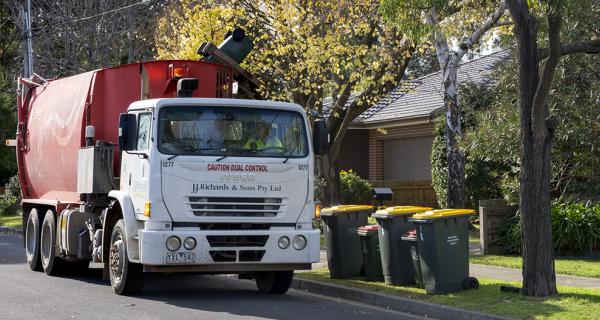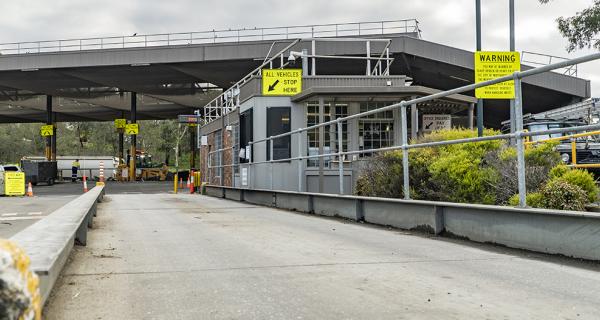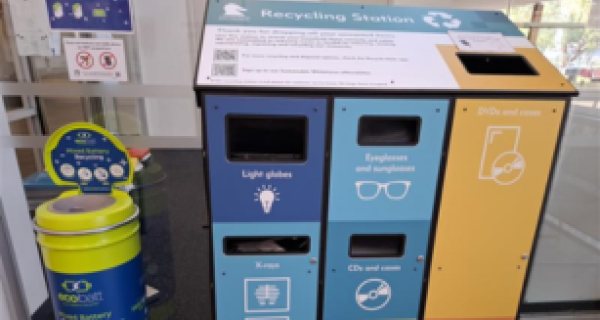Litter, dumped rubbish and hazardous waste
What's on this page
We want Whitehorse to stay a safe and beautiful place for residents, businesses, and visitors alike, and keeping it clean is a shared responsibility. Dumping rubbish or litter in our streets, parks, or any public place makes our community look untidy, can cause injuries to people and animals, and can attract vermin.
Dumping any litter or waste on public land (or on private property without permission) is illegal. Littering is a serious offence under the Environment Protection Act 2017 and Council’s Whitehorse Community Local Law 2024. Fines apply for offenders, and our Community Laws Officers can issue infringement notices. In severe cases, offenders may even face court prosecution.
You don’t need to dump unwanted items. Council provides residents with two free hard waste collections each year for large or difficult-to-dispose items that don’t fit in or are not accepted in your regular bins, such as furniture or appliances.
How to report litter and dumped rubbish
If you see rubbish that looks like it was dumped, or witness someone littering or dumping illegally, please report it so we can investigate and arrange clean-up.
Booked hard waste does not need reporting if it has a Council sticker. This means it is part of an approved collection and will be picked up soon. Some bookings may not display a sticker, but are still valid.
Ways to report littering and dumped rubbish:
- Snap Send Solve app (on your smartphone or desktop): Download or use online
- Email: customer.service@whitehorse.vic.gov.au
- Phone: Call (03) 9262 6333 (available during business hours, with after-hours options for urgent issues)
- In person: Visit any of Council’s two Customer Service Centres
What to include in your report
- The exact location
- Date and time
- Description of the rubbish
- Any helpful details (e.g. vehicle registration, photos, or information about the person involved)
Your report helps keep Whitehorse clean, safe, and welcoming for everyone.
Dumped rubbish
Leaving things like old furniture, electronics, tyres, or other household waste on footpaths, in parks or on nature strips isn’t just against the law, it makes our streets look messy and can make neighbours feel unsafe.
To help you dispose of large items the right way, Council offers two free hard and green waste collections each year for residents.
If someone is found dumping rubbish, they may receive a fine from Council under our Community Local Law.
Fines and penalties for littering and dumped rubbish
When rubbish is dumped on public or private land, Council’s Community Laws team will investigate. If it is on private property, the landowner is responsible for removing it, but Council will still look into who dumped it.
If our officers identify the person responsible, they may be fined under the Environment Protection Act 2017 or the Whitehorse Community Local Law 2024.
In serious or repeat cases, offenders may be prosecuted and taken to court.
Dumping isn’t worth the risk. Use the right disposal services and help keep Whitehorse clean.
How to correctly dispose of waste
It is not always clear what belongs in which bin, or where to take things that don’t belong in any bin.
To make things easier, we recommend downloading the Recycle Mate app. It’s free, and it helps you figure out exactly how to dispose of almost any item based on your location. Just search or snap a photo, and it’ll tell you where it can be recycled, reused, or safely disposed of.
Here’s how we are also helping:
- Hard waste collections and drop-off options for items that don’t belong in regular bins
- Clear information and resources on what goes in each bin
- Circular economy programs and partnerships to keep waste out of landfill
- Visual bin checks and education tags as part of our Gold Star Bin Education Program
Every small action helps reduce waste and protect our environment. If you're ever unsure, check Recycle Mate or contact Council for advice.










